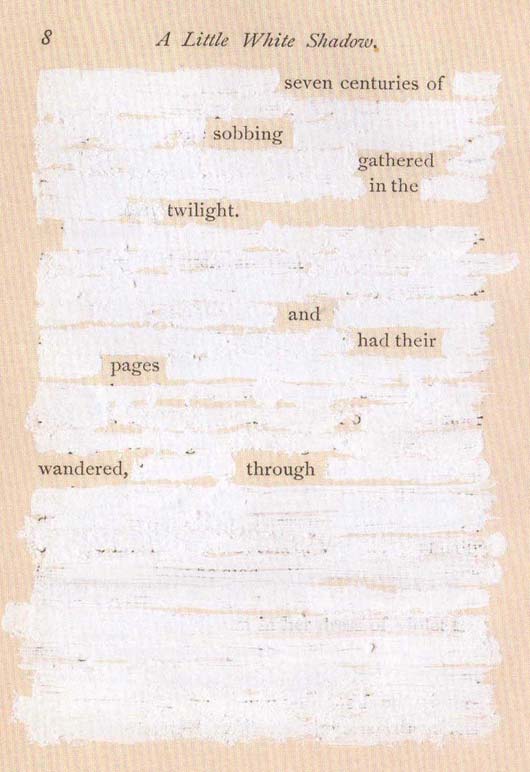West 10th Poetry Editor Michael Valinsky speaks with Sophia Le Fraga about her recent work, the strange vocabulary of the Internet, and what we can expect to see from her soon.
MV: In light of your newest work, IRL YOU RL, what is your stance on the way language has evolved since the beginning of Internet? Is this development a good or bad thing?
SLF: When I was at NYU, I majored in Linguistics, which studies the science of language, and covers, to a certain extent, how language functions in society as well as how it evolves. So, I don't really think about language evolution in terms of good or bad, or at least not anymore.
When I started studying though, I was really concerned with prescriptive grammar and with "conserving" language, which I put in quotes now because I'm kind of laughing at myself. I used to be all about purism in language and grammar, and was interested in institutions like L'Académie Française, for example, and the ways in which they're concerned with not letting too many Anglicisms into French… You know what I mean, things like that. I thought that this task was really important, and still understand the intentions behind language preservation, but I've come to love and embrace neologisms in American English and other things like that.
For example, the words "A/W," "buzzworthy," "derp," "emoji," "FOMO," "selfie," "TL;DR," and "twerk" were just added to the Oxford English Dictionary this year. I had to look up half of them, and type most of them 3+ times because autocorrect hasn't updated. I think this is totally awesome. The Internet is evolving, changing the world around us, making us evolve — and it logically follows that it's making our language evolve and adapt accordingly, too.
MV: Your book plays with Internet language -- why do you think this 'type' of expression is worth exploring?
SLF: I'm super interested in the way people express themselves with what they say and with what they don't say. I'm also interested in the way expression changes over time, and more currently, the way people express themselves in our time. Since texting and chatting and Facebooking and Tweeting make up such a big percentage of the ways in which we converse nowadays, I wanted to explore the language and structures we use to signify the things we mean in these new media.
I mean, I'm not sure that this "type" of language is the most important thing in the world, what with the situation in Syria and Miley Cyrus at the VMAs— but from a linguistic and poetic standpoint, I suppose it's just about as important as everything else.
MV: There's been a lot of controversy around the intentions and authenticity of conceptual writing recently, with articles both advocating for and denouncing it -- how do you feel about appropriated material, even if it is part of your process?
SLF: Like you said, appropriating material is part of my process, and I RL, YOU RL is basically totally not mine (thinking about Creeley, "Was That A Real Poem Or Did You Just Make It Up Yourself"). So if you're asking whether I'm pro or anti appropriation, I'd have to say I'm pro. But I did write a non-response to said controversy in the form of a shuffle-able Tumblr you can visit here: http://poetryslastwords.tumblr.com.MV: Can you speak a bit about what was at the core of IRL YOU RL's genesis?
SLF: Unlike I DON'T WANT ANYTHING TO DO WITH THE INTERNET, I RL, YOU RL was more of a compilation than the culmination of a project. I'd been hoarding a lot of pieces made from material I had gathered on social media, pretty much since April 2010, and it had just been like, sitting in folders on my desktop (not just one folder, because I'm poorly organized). And, I don't know, I guess I could have kept going until it all bulked up more or until I was happier with it or, you know, forever, but I had a sense that the project was done and that I wanted to move on to other things… so yeah. That's I RL, YOU RL for you.
MV: As you said, a lot of the material in the book was appropriated or found; I’m very interested in the way one hierarchizes information. How did you choose your found language, was it arbitrary or were you ‘looking for something’ in particular?
SLF: I wasn’t really looking for much of anything, but I’m attracted to anything that makes me laugh or, you know, “feel”. Thinking of Diana Hamilton, another NYU alumna, “everything I felt was felt first by the Internet” —I like to cull social media and other platforms for language that help me better express the things I don’t have to say.
MV: Your writing has always been interested, entertaining, emotive and compelling, anything imminent in store for us?
SLF: I’m working on a pronoun project called Sophia Le Fraga’s Second Person, but trying hard to go back into exploring different media, and different realms of the written word. I just wrote a thing using only the semantic definitions of verb classes, and am working on a photo-collaboration with some Tisch alumnae that will potentially be called “Ecriture Féminine”. A mixed media group project called I HAVE OFFENDED EVERYONE is something else to look out for.
--
Brooklyn-based Sophia Le Fraga studied Linguistics and Poetry at New York University. She is the author of I DON'T WANT ANYTHING TO DO WITH THE INTERNET (2012) and I RL, YOU RL (2013). Her work has been exhibited at the Brooklyn Museum, the Corcoran Gallery, and throughout Berlin and Spain. Her writing has appeared in Lambda Literary Review's Poetry Spotlight, Coconut, and Lemon Hound, among other publications.

